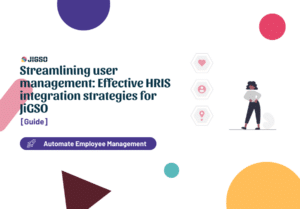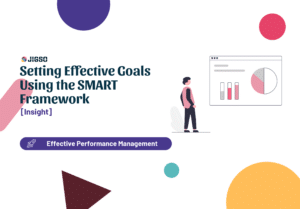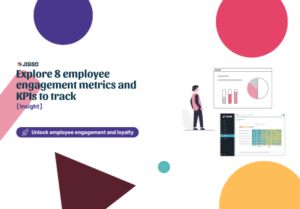Introduction
Employee surveys are an invaluable tool for organizations to gain deeper insights, understand employee sentiments, and drive positive change within the workplace.
However, the success of these surveys heavily relies on one critical factor: obtaining high response rates that accurately represent the thoughts and opinions of the entire workforce. Without active participation, survey results may lack depth and fail to provide the actionable data needed to make informed decisions.
In this article, we will explore the art of crafting effective survey reminders that will significantly boost response rates. By implementing proven strategies, this article will guide you through the process of creating compelling survey reminders that resonate with your employees, increasing engagement and the overall quality of feedback received.
In addition, we provide you with a set of off-the-shelf templates that you can use as a starting point to tailor your reminders to your organization’s unique culture and needs.
Crafting the Perfect Survey Reminder
To maximize survey response rates, it’s essential to implement effective strategies that not only encourage participation but also create a positive and engaging experience for employees. Here are some additional tips to further enhance the impact of your survey reminders:
Timely and Personalized Reminders
Sending timely and personalized reminders is a crucial aspect of boosting survey response rates. Consider segmenting your employee list and tailoring the messages based on their unique characteristics, such as department, role, or location. Address employees by their names to create a sense of individuality and value. Moreover, use data from previous surveys or interactions to acknowledge their specific contributions and highlight the impact their feedback has had on previous initiatives. By personalizing the reminders, you demonstrate that each employee’s voice is essential and reinforce the significance of their participation.Express Gratitude
Expressing gratitude is a powerful way to show employees that their efforts and insights are genuinely appreciated. In your survey reminders, take the time to thank those who have already participated, emphasizing the positive outcomes their feedback has contributed to. Use sincere language to acknowledge their role in shaping the organization and creating a positive work environment. Additionally, consider recognizing employee achievements or milestones related to the survey. For example, you can highlight the top contributors or teams with the highest response rates in previous surveys. This recognition fosters a sense of pride and encourages others to actively engage in the survey.Create a Sense of Urgency
A sense of urgency can be a compelling motivator for employees to complete the survey promptly. In your reminders, clearly state the survey deadline and the consequences of missing the opportunity to provide feedback. Use action-oriented language to encourage immediate action, such as “Don’t miss your chance to be heard!” or “Time is running out – share your thoughts today!” Additionally, consider providing periodic updates on the survey’s progress, showcasing how many responses have been received and how close the deadline is. This real-time feedback can create a healthy sense of competition and encourage employees to participate to help achieve the survey’s goals.Multiple Channels
Leveraging multiple communication channels allows you to reach employees effectively and increase the visibility of the survey. In addition to email, consider using internal messaging platforms, such as Slack or Microsoft Teams, to send reminders to employees. This enables real-time communication and provides an opportunity for employees to ask questions or seek clarification. Furthermore, consider utilizing team meetings, both in-person and virtual, to discuss the survey and its significance. Team leaders can play a pivotal role in encouraging participation during these meetings, as their direct involvement increases the response rate.
By incorporating these extended strategies into your survey reminders, you can create a compelling and impactful communication approach that resonates with employees. Remember that the success of survey reminders lies in their ability to connect with employees on a personal level, showcase the value of their feedback, and inspire them to actively participate in shaping the organization’s future.
Some Templates for inspiration
Use the templates below as a source of inspiration to send friendly and effective survey reminders to employees. Do not forget to express gratitude to those who have already participated and gently nudge those who haven’t. In addition, emphasize the significance of their feedback in shaping the organization’s future and assure them of confidentiality. With concise and positive messaging, encourage active participation before the survey closes.
These templates consider best practices, ensuring maximum reach through diverse communication channels like email, internal messaging platforms, and team meetings. Do not forget to customise them in order to match your organisation’s wording and tone of voice!
Template 1
Subject: Final Call for Your Valuable Feedback
Dear [Employee’s Name],
We hope this message finds you well. We want to extend our gratitude for those who have already participated in our employee survey. For those who haven’t had a chance yet, we kindly remind you that the survey will be closing soon.
Your feedback is instrumental in shaping our organization’s future and making meaningful improvements. We assure you that all responses will be kept confidential and used solely for analysis purposes.
The survey takes only [estimated time] to complete, and we value every response we receive.
Your insights matter to us. Please take a moment to share your thoughts before the survey ends.
Survey Link: [Survey Link]
Thank you for your time and valuable input.
Best regards, [Your Name] [Your Title/Organization]
Make the following template available to your organisation’s managers and team leaders. Ask them to customise the template and send it to their direct reports. This allows you to segment your employee list, resulting in tailored messages base the unique characteristics of a department, team, or role.
Template 2
Subject: Your Input Matters – Employee Survey Reminder
Dear Team,
We want to thank everyone who has participated in our employee survey so far. Your engagement is commendable.
For those who haven’t participated yet, we kindly remind you that there are multiple ways to share your thoughts:
- Check your email inbox for a personalized survey link.
- Access the survey on our internal messaging platform, [Platform Name].
- Join our team meeting tomorrow, where we’ll discuss the survey and address any questions you may have.
Your feedback is crucial in shaping our future initiatives and ensuring a positive work environment for all.
Please take a moment to contribute your insights. Your input holds immense value to us.
Survey Link: [Survey Link]
Thank you for your continued support.
Sincerely, [Your Name] [Your Title/Organization]



